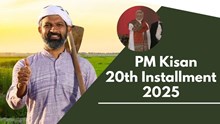
Union Minister for Environment, Forest and Climate Change, Labour and Employment, Bhupender Yadav, has underscored the critical importance of forest fire prevention, post-fire restoration, and forest certification as essential tools for sustainable forest management. He delivered this message during the United Nations Forum on Forests (UNFF) at the Forest Research Institute (FRI) in Dehradun.
Mr Yadav emphasized that forest fires not only wreak havoc on flora and fauna but also impact the livelihoods of communities living on the fringes of forests. To promote sustainability, he highlighted the significance of forest certification. However, he acknowledged the challenges faced by small-scale producers in developing countries. In response to these challenges, India has initiated its national forest certification scheme, seeking to address these issues. Yadav called upon all participants to collaborate and work toward creating a sustainable, equitable, just, and resilient future.
Minister of Forests, Languages & Technical Education, Government of Uttarakhand, Subodh Uniyal, welcomed distinguished delegates to Uttarakhand, known as ‘Dev Bhoomi.’ He discussed the state's initiatives and programs, emphasizing the importance of involving local communities in forest fire prevention and incentivizing their cooperation with forest departments. Forest certification, as a mechanism for monitoring forests, also featured prominently in his remarks.
Director of the UNFF, Ms. Juliette Biao Koudenoukpo, highlighted the global concern surrounding forest fires and their detrimental impact on ecosystems and communities. She stressed the urgency of taking action and noted that the second theme of the CLI, forest certification, requires actionable solutions. She also emphasized the importance of collective efforts to identify areas for action and recommendations for UNFF 19.
The Ministry of Environment, Forest and Climate Change, Government of India, took the initiative to host the United Nations Forum on Forests from October 26-28, 2023, at the Forest Research Institute in Dehradun. More than 80 delegates from 40 countries and 20 international organizations, including the Food and Agricultural Organization (FAO) and the International Union of Forest Research Organizations (IUFRO), attended the program, which adopted a hybrid format, allowing both in-person and online participation.
The Country Led Initiative (CLI) focused on two thematic areas: forest fires/wildfires and best practices for their prevention and restoration, as well as forest certification and sustainable forest management. Forest fires have profound impacts on biodiversity, ecosystems, human well-being, livelihoods, and economies. The increased scale and duration of forest fires in recent years necessitate enhanced collaboration and action at local, regional, and international levels.
Forest certification has gained global attention, with the certified forest area increasing by 27 million hectares between 2020 and 2021, primarily in Europe and North America. However, developing countries and marginal forest managers face challenges with the certification process. The Forum aims to provide a platform for discussing these challenges and aligning certification systems with trade rules.
The Forum featured two days of discussions on the thematic areas, covering topics such as living with fire in a warming world, policies for integrated fire management, and the use of the newly developed Global Fire Management Hub. Cultural programs and a field trip to Rajaji National Park were also part of the program.
Director-General of the Ministry of Environment, Forest and Climate Change discussed the negative impacts of forest fires on public health, economic activities, and forest biodiversity in India, where more than 62% of states are prone to high-intensity forest fires. He also presented India's proposed global collaboration, the Gandhinagar Implementation Roadmap and Gandhinagar Information Platform, to address the restoration of forest fire and mining-degraded lands.
The forum included panel discussions on forest fires, policies for fire prevention, and the global forest management hub, featuring participation from various countries and international organizations. The discussions included New Zealand, Madagascar, Colombia, Morocco, India, Portugal, Malawi, Botswana, Russia, Nigeria, South Africa, Spain, FAO, UNEP, ITTO, and IUFRO. Several other countries and organizations expressed their views and suggestions on prevention and effective management, emphasizing community participation.
On the 27th of October, the forum will cover interactions on Forest Certification and Sustainable Forest Management, with presentations from South Africa, Russia, and India. The outcome of the forum will be summarized by the Co-chairs and submitted for consideration at the 19th session of UNFF, scheduled for May 2024 at the United Nations headquarters.

















